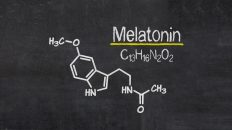By Virginia Gurley, MD, MPH
MB (Marc Braman, MD, MPH):
Our topic this session is “Depression & Sleep.” Thank you for joining us, Dr. Gurley.
VG (Virginia Gurley, MD, MPH):
Thank you, Dr. Braman.
MB:
So, depression is quite common, and, well, just very depressing. What is the relationship between depression and sleep? And how might we use sleep to prevent or treat depression?
VG:
Well, there is definitely a strong relationship between sleep and depression. Several studies have found that not enough sleep and difficulty sleeping, which is called insomnia, increases one’s risk for developing depression. It’s not fully understood why poor sleep increases depression, but there is a lot of evidence that poor sleep makes us more sensitive to stress and stress, over time, can cause depression. So, one study that followed people for eight years found that people who regularly have trouble falling asleep or staying asleep were between 2x and 5x more likely to develop depression during that eight year period that they followed them.
MB:
Wow! That’s actually huge! That’s 200%-500% increased risk. Given that a person with insomnia wants to get good sleep but just can’t sleep, what can a person with chronic insomnia do to avoid this big increased risk for depression.
VG:
Well, one treatment for insomnia that has been found to be quite effective in many people is called cognitive behavioral therapy, or its abbreviation is CBT. Basically CBT helps people learn how their beliefs and behaviors are disrupting their sleep and how to develop new sleep habits and attitudes that support healthy restful sleep. There are even some CBT programs now that are online so it can be a very convenient way to address your insomnia.
MB:
CBT is a powerful lifestyle tool for overcoming insomnia and reducing one’s risk for depression. I had a psychiatrist colleague, just recently, share with me that the VA healthcare system has actually developed an app called “CBTi-Coach.” And, he was telling me that it basically does what he would do working with a person through many sessions except it’s on an app and it’s a lot more convenient, so I’m having a couple patients try this out and give me some feedback.
VG:
That’s great. And, yes, this CBT is not only shown to help people overcome chronic insomnia, but other studies have found that CBT for the treatment of depression is as effective for treating mild, moderate and even severe depressive disorder as is the most widely used anti-depressant medications. And the risk for side effects from CBT are much, much lower.
MB:
Wow, as effective as anti-depressant medications, that’s very impressive! And, it sounds like the side effects are pretty similar to other lifestyle medicine treatments – basically they’re all positive. This is the kind of medicine that should be our primary treatment for most of the ills of modern life. Treating the cause is the best treatment.
Thank you, Dr. Gurley.
VG:
Thank you, Dr. Braman.
Prospective associations of insomnia markers and symptoms with depression. Szklo-Coxe M, Young T, Peppard PE, Finn LA, Benca RM. Am J Epidemiol. 2010 Mar 15;171(6):709-20. doi: 10.1093/aje/kwp454. Epub 2010 Feb 18.
Cognitive behavioral therapy for patients with primary insomnia or insomnia associated predominantly with mixed psychiatric disorders: a randomized clinical trial. Edinger JD, Olsen MK, Stechuchak KM, Means MK, Lineberger MD, Kirby A, Carney CE. Sleep. 2009 Apr;32(4):499-510.
Comparative benefits and harms of second generation antidepressants and cognitive behavioral therapies in initial treatment of major depressive disorder: systematic review and meta-analysis. Amick HR, Gartlehner G, Gaynes BN, Forneris C, Asher GN, Morgan LC, Coker-Schwimmer E, Boland E, Lux LJ, Gaylord S, Bann C, Pierl CB, Lohr KN. BMJ. 2015 Dec 8;351:h6019. doi:10.1136/bmj.h6019.





